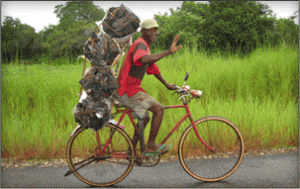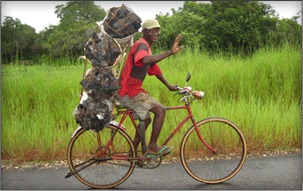 The past week saw the resignation of one the most powerful CEOs in the world: Tom Albanese of the mining giant Rio Tinto. One of the factors that precipitated his downfall was an embarrassing write-down on the companies coal assets in Mozambique, of roughly 3 billion USD. The loss stemmed primarily from a failure to overcome the country’s infrastructure challenges, as the Mozambican government struck down the firm’s plans to transport coal on the Zambezi river. This story hardly paints a rosy picture of business in the country and, frankly, what’s more unsexy than coal mining?
The past week saw the resignation of one the most powerful CEOs in the world: Tom Albanese of the mining giant Rio Tinto. One of the factors that precipitated his downfall was an embarrassing write-down on the companies coal assets in Mozambique, of roughly 3 billion USD. The loss stemmed primarily from a failure to overcome the country’s infrastructure challenges, as the Mozambican government struck down the firm’s plans to transport coal on the Zambezi river. This story hardly paints a rosy picture of business in the country and, frankly, what’s more unsexy than coal mining?
At the same time there are numerous grassroots examples of profitable business ventures in Mozambique that also happen to be more environmentally friendly. The example of Mozambikes is particularly interesting because it has found a creative way of overcoming the transportation difficulties that proved so costly to Rio Tinto.
The start-up Mozambikes has uncovered an interesting niche market with considerable social impact. By selling high quality bicycles at low prices (999 meticais, or just over $30) it has given the country’s rural population a cost-efficient way of overcoming the scarcity of transportation in this vast country. The firm’s founders describe how the rural population had previously needed to walk several kilometers each with “massive containers of water or bundles of firewood on their heads.”
The company has established an extensive retail network to cover each corner of the country. At the same them they have expanded their business model to sell advertising on the bikes and have forged effective partnerships with business customers to provide Mozambikes to their employees. The bikes enable firms to provide quicker product deliveries, transport components between facilities and to attract workers from other communities.
At the same time, the benefits of bikes goes beyond simply cutting transportation time for companies by improving access to health facilities and education for farmers. As we all know, bikes are also an excellent way to stay in shape and therefore offer a better solution than motorized alternatives. In addition, they help to protect the environment, by offering a clear zero-carbon means of transport. After all, harmful environmental side effects were a key reason for Rio Tinto’s failure to transport coal to the nation’s harbors.
Mozambikes shows how entrepreneurs can empower disadvantaged populations while being profitable and producing positive externalities in the form of health and environmental benefits. That’s definitely sexier than coal mining.

